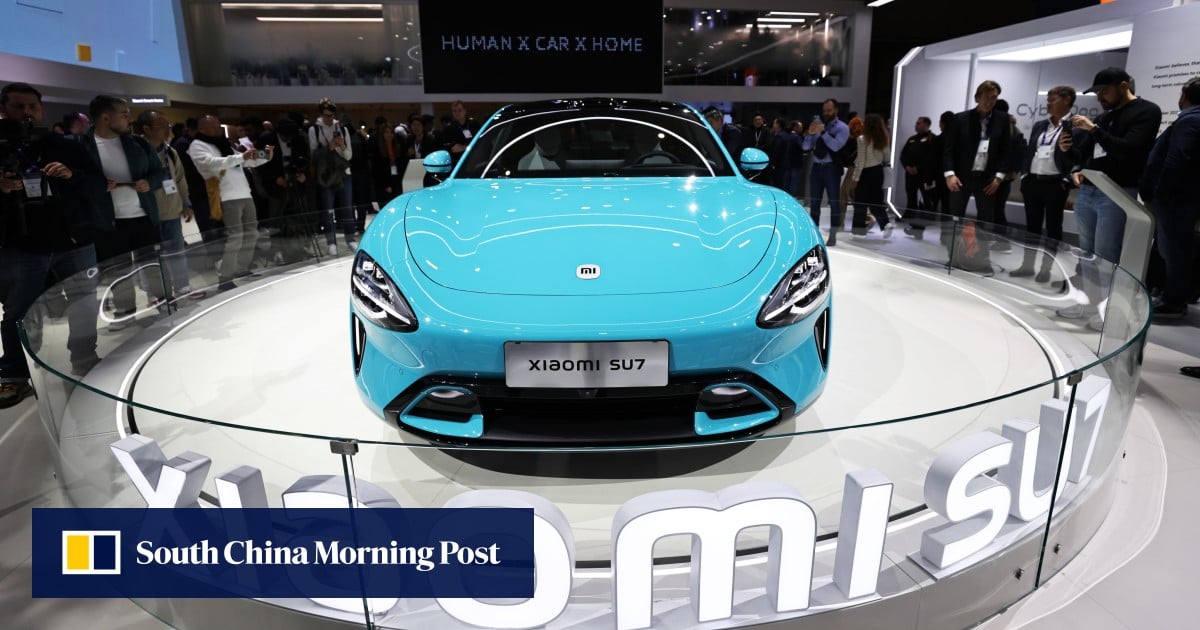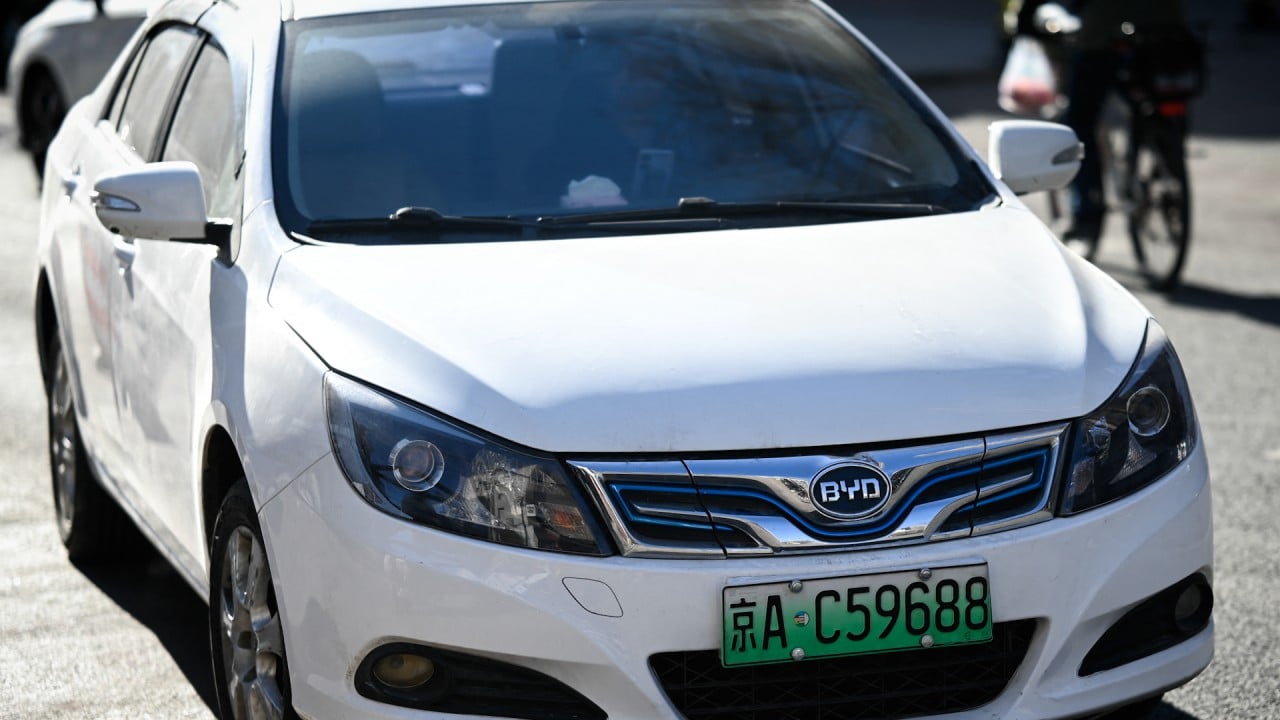The Beijing-based company said on Tuesday orders could be placed immediately, but it did not unveil prices of the long-awaited sedan.
The SU7, fitted with intelligent features such as an autonomous driving system and digital cockpit, is on display at 59 showrooms in 29 cities across China, according to a post on the microblogging site Weibo.
The SU7 goes on sale three years after Xiaomi ventured into EVs to diversify its business. Founder and CEO Lei Jun unveiled details of the car in December, expressing his ambitions of building a dream vehicle on par with Tesla for mainland Chinese consumers.
Xiaomi said the SU7 has sports-car level performance, which is powered by its self-developed HyperEngine electric motor that produces up to 21,000 revolutions per minute. It uses batteries from China’s Contemporary Amperex Technology, offering a driving range of up to 800 kilometres.
The driver assistance system enables the car to self-park and self-navigate on city streets.
“Because of the fierce competition, Xiaomi needs to offer the new car at attractive prices to achieve strong sales,” said Zhao Zhen, a sales director with Shanghai-based dealer Wan Zhuo Auto. “Nowadays, Chinese drivers have lots of options in the overcrowded market.”
Xiaomi is expected to price the SU7 between 250,000 yuan (US$34,827) and 370,000 yuan, according to a report by Shanghai-based financial media outlet Jiemian.
Tesla’s Shanghai-made Model 3 has a price tag of 245,900 yuan to 285,900 yuan.
Xpeng’s first right-hand drive EV to hit Hong Kong, SE Asia roads this year
Xpeng’s first right-hand drive EV to hit Hong Kong, SE Asia roads this year
HSBC was more conservative in its estimate, saying the SU7 could be priced in the 200,000 yuan to 300,000 yuan range.
The SU7 is quite competitive compared with similar models based on the specifications disclosed, the bank said in a report recently. However, the car’s actual selling price could hold the key to gauging sales volume as Chinese consumers are quite price sensitive in the current economic conditions, it added.
In late February, BYD, the world’s largest EV assembler, slashed the price of Seal’s basic edition by 25,000 yuan, or 11.7 per cent, to 187,800 yuan.
Geely’s premium EV unit Zeekr cut prices of its refreshed 001 sedan by 10 per cent. The upgraded Zeekr 001 is now priced at 269,000 yuan (HK$292,349) to 329,000 yuan, compared with 300,000 yuan to 386,000 yuan for the discontinued model.
Cui Dongshu, general secretary of the China Passenger Car Association, said last month that most carmakers were likely to continue offering discounts to retain market share, which could reshape the domestic market.
Fitch Ratings warned last November that electric vehicle sales growth could slow to 20 per cent in China in 2024, from 37 per cent last year, amid economic uncertainties and intensifying competition.








